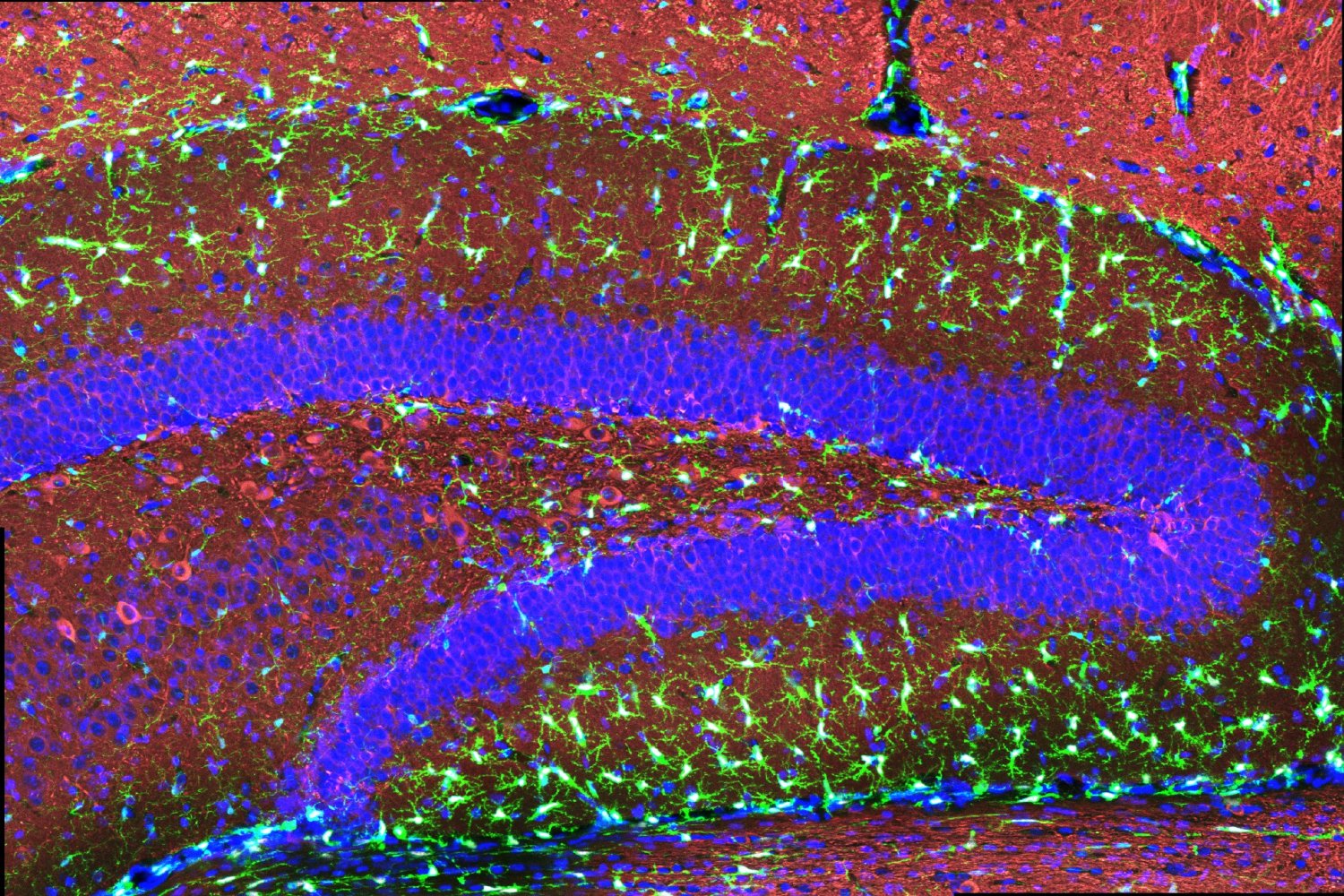
A rare but potent genetic mutation that alters a protein in the brain’s immune cells, known as microglia, can give people as much as a threefold greater risk of developing Alzheimer’s disease. A new study by researchers in The Picower Institute for Learning and Memory at MIT details how the mutation undermines microglia function, explaining how it seems to generate that higher risk. “This TREM2 R47H/+ mutation is a pretty important risk factor for Alzheimer’s disease,” says study lead author Jay Penney, a former postdoc in the MIT lab of…



